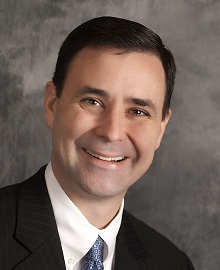 Time to Elevate Talent Management from Tactical to Strategic
Time to Elevate Talent Management from Tactical to Strategic
By J.P. Fingado
API Healthcare
At the core of every healthcare business strategy is the basic yet constant effort to improve patient care while maintaining an edge in an increasingly demanding and competitive field. To that end, organizations are searching for ways to reduce operating costs and boost shrinking profit margins, all while working to improve the overall health of the patients and communities they serve.
To be successful, that focus on wellness will need to expand beyond the healthcare consumers to encompass the overall health and well-being of the healthcare workforce. Labor is the single largest expense most healthcare operations face, accounting for between 45 and 60 percent of operating costs. Because the organization’s employees have the biggest impact on the cost and quality of care, it makes sense to implement strategies that have a positive effect on them.
Talent Management is the focus on strategic management of employees to provide a strong connection between the clinicians and the patients they care for. When the individual and collective talents, skills and competencies of the clinicians are strategically led, managed and developed, the healthcare organization becomes empowered to meet the needs of the patients. The demand for an engaged, effective and optimized workforce will require healthcare organizations to elevate their workforce and talent management strategies from tactical to strategic.
When the economic downturn hit, disengaged employees had fewer options for career moves and more reasons to stick with their job regardless of whether or not they were satisfied. However, what was more of an employer’s market is shifting to a more employee-driven market in healthcare for several reasons.
- The aging demographics of the country are driving up the demand for healthcare. America’s 78 million Baby Boomers began turning age 65 last year at a rate of one every 10 seconds. By the time they reach age 65, two-thirds of all Baby Boomers have at least one chronic disease.
- The healthcare workforce is also aging. At a point where there’s a growing demand for healthcare services, the median age of a nurse is 46, and more than 50% of the nursing workforce is nearing retirement age.
- In conjunction with those demographic issues, the rollout of healthcare reform will have a dramatic impact on the need to develop and deploy the healthcare workforce effectively. The Patient Protection and Affordable Care Act will drive 32 million more health services consumers into the healthcare system[i], placing greater demands on healthcare providers and clinicians.
Those shifts in demographics and the roll out of healthcare reform will make healthcare workforce wellness a critical component of success. Aligning overall organizational objectives with the patient and unit goals and the individual employee ambitions – and then tying those objectives to performance criteria and compensation planning– helps ensure that everyone is working with a common purpose.
With so many demands for time and resources, healthcare providers will continue to find it necessary to focus their attention on the solutions and processes that can have the biggest impact on their organization. Talent management reaches beyond the human resources department and impacts the healthcare organization’s ability to achieve their corporate goals. Employees are the lifeblood of a healthcare provider, and the development and deployment of those valuable human resources are critical to the short-term and long-term success of the entire health system.
[i]Sources: PricewaterhouseCoopers, Baby Boomers Magazine, American Nurses Association, healthcare.gov
J.P. Fingado is President and Chief Executive Officer of API Healthcare and has 21 years of senior-level healthcare information technology experience. The above post is an excerpt from Fingado’s new white paper, Talent Management, which is available in full on API’s website. Visit API Healthcare in booth #3141 at HIMSS in New Orleans from March 3-7. Follow API Healthcare on Twitter @APIHealthcare.
